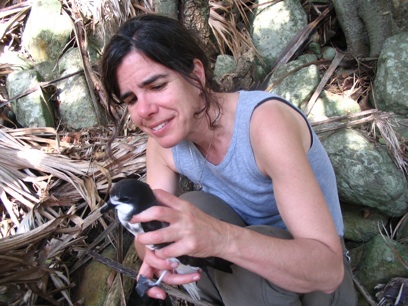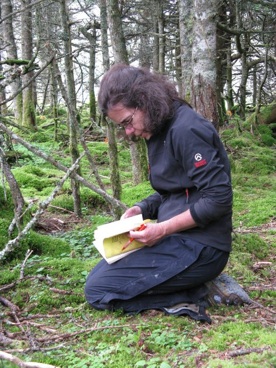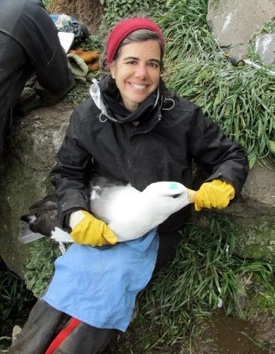marine organism-environment interaction
Dr. Nevitt’s speciality is in the sense of smell, and she is considered a leader in avian chemical ecology and olfaction. She and her students have also published extensively on proximate and evolutionary factors contributing to phenotypic plasticity, and this work has been carried out primarily with model fish species, including desert pupfish and salmon. She also has extensive experience working with procellariiform seabirds mainly in the Southern Ocean and the Canadian Maritimes.
Education
BS Biological Sciences; Stanford University (1983)
PhD Zoology; University of Washington (1990)
Research Interests
The sensory world of most organisms differs extraordinarily with that of humans and helps to shape the ways in which organisms interact with the environment and with each other. Our lab is interested in underlying mechanisms driving such interactions. Thus we tend to work at the interface between neurobiology and ecology, and our work has traditionally spanned a wide range of species and habitats, from Death Valley to the Southern Ocean.
My specialty is olfaction - the sense of smell - and much of my research has focused on exploring how marine birds and fishes use smell in the natural environment. Over my career, I have worked in areas ranging from olfactory homing in salmon, to olfactory foraging, navigation, and individual recognition in birds, and in particular, petrels and albatrosses. I am also interested in multi-modal detection and adaptation and frequently collaborate with specialists in other modalities and disciplines. Members or our laboratory have worked in areas ranging from olfactory homing in salmon to olfactory foraging and navigation in procellariiform seabirds- the petrels, albatrosses, and shearwaters.
About Gabrielle Nevitt
Stats
name GABRIELLE NEVITT
Department: NEUROBIOLOGY, PHYSIOLOGY & BEHAVIOR
GRADUATE GROUPs AVIAN SCIENCES, ECOLOGY, ANIMAL BEHAVIOR
RESEARCH: AVIAN AND FISH SENSORY ECOLOGY


